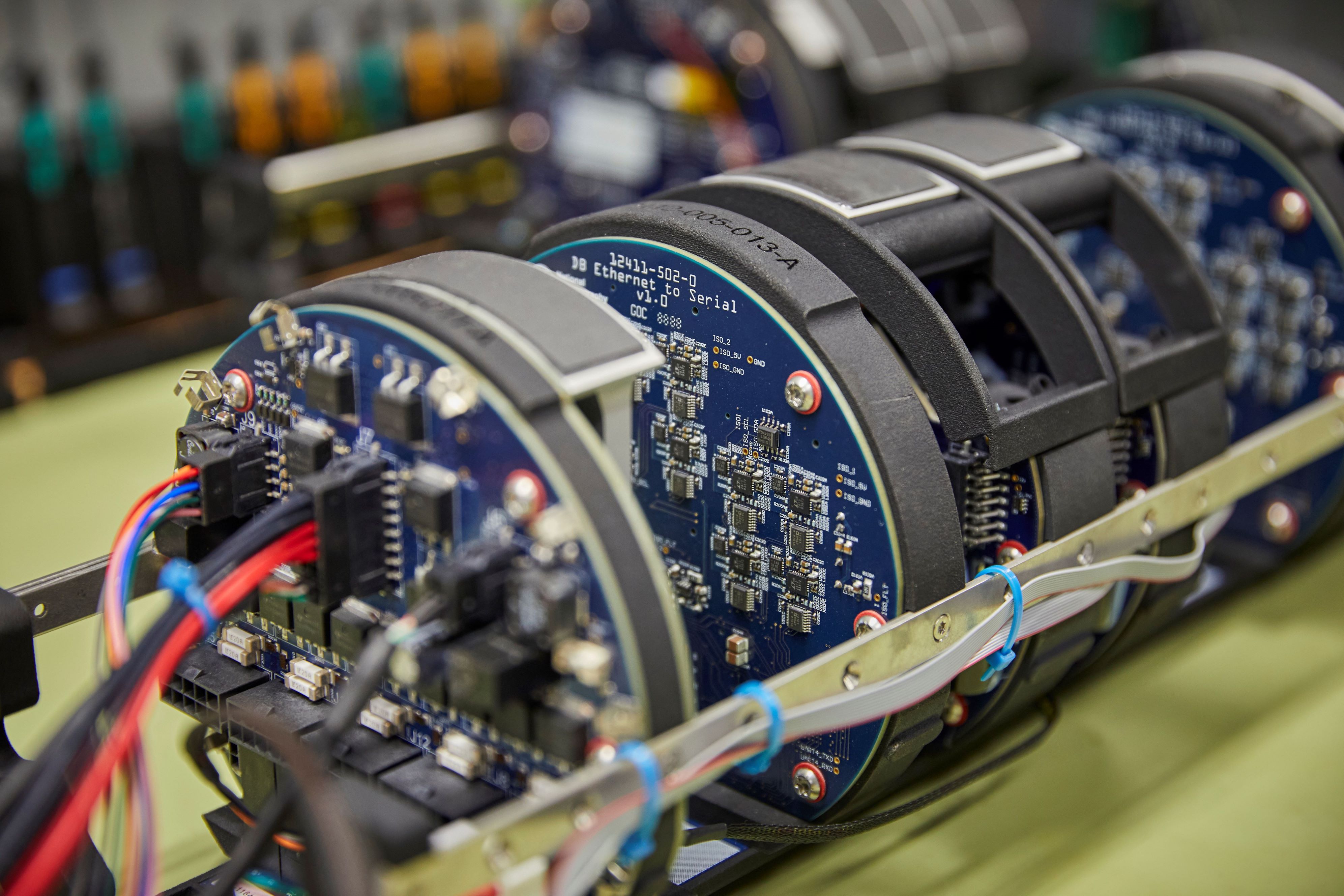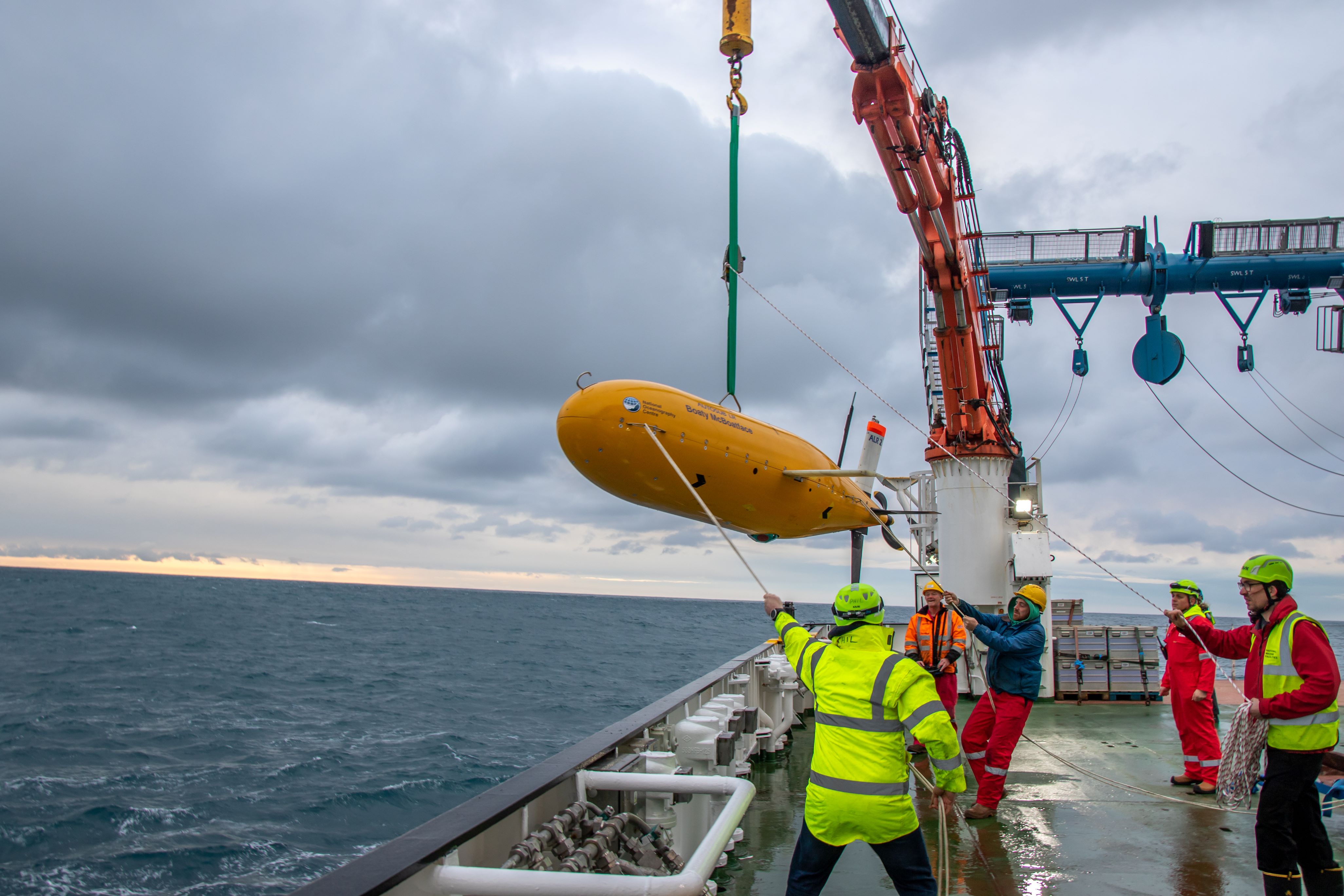AtlantiS will develop the next generation of tools for autonomous collection of data on biodiversity, ecosystem processes, and biogeochemistry, essential for the autonomous monitoring of ecosystem health and change in the ocean. The tools will support the UK’s ambitions to achieve lower-carbon ocean observations, while simultaneously expanding observing capability (parameters, spatial coverage, and temporal resolution) far beyond that which can be achieved with research cruises.
Tools for ocean biological analysis, from biodiversity to ecosystem health: AtlantiS is addressing capability gaps in biological sensors, targeting biological Essential Ocean Variables (EOVs) on biomass, diversity, and abundance as some of the key indicators of ocean health. We are delivering tools for in situ biodiversity analysis via improvements to the 'RoCSI' eDNA collector to enhance its longevity, and through genomic analysis tools. We are improving capabilities for analysing phytoplankton population dynamics and their effect on carbon uptake through in situ cytometry and with an improved marine snow catcher. We are moving towards analysis of ecosystem functioning by developing in situ tools for enzyme analysis.
 Expanding biogeochemical capacity for long-term observations: AtlantiS includes targeted developments for long-term observation of high-priority biogeochemical measurements to improve understanding of nutrient and carbon cycling and marine biogeochemistry. We are exploring the use of novel materials and fabrication processes to create sensor systems for the marine carbonate system. By combining accurate with fast technologies, we aim to overcome the traditional issues of drift, corrosion, and biofouling while enabling long-term accurate carbonate analysis. Lastly, we are creating robust tools for new highly sensitive in situ analysers for critical micronutrients that are difficult to measure otherwise.
Expanding biogeochemical capacity for long-term observations: AtlantiS includes targeted developments for long-term observation of high-priority biogeochemical measurements to improve understanding of nutrient and carbon cycling and marine biogeochemistry. We are exploring the use of novel materials and fabrication processes to create sensor systems for the marine carbonate system. By combining accurate with fast technologies, we aim to overcome the traditional issues of drift, corrosion, and biofouling while enabling long-term accurate carbonate analysis. Lastly, we are creating robust tools for new highly sensitive in situ analysers for critical micronutrients that are difficult to measure otherwise.
Innovations in observational infrastructure and data handling: achieving fewer ship visits to fixed-point moorings and arrays requires robust data transfer and sensing systems that can survive longer between deployments. This is enabled with the provision of near-real-time communications through careful design of data handling systems, standardisation of formats, and on-sensor data quality control to create robust “Sensor to Scientist” data-chains. AtlantiS is improving sensor longevity on moorings and contributing expertise to the re-engineering of long-term observational moorings to improve robustness. We are developing and demonstrating improved power generation and storage systems based on supercapacitors, exploring technologies for harvesting environmental power, and implementing adaptive sampling strategies. To facility early testing and demonstrations, we are creating an easy-to-use “plug and play” site for easy long-term testing of sensors and data chains.
 Sensing systems for evaluating fluxes and processes: AtlantiS is creating and demonstrating next-generation autonomous systems to measure biogeochemical fluxes and biological processes to better constrain the boundary conditions of biogeochemical models, offer insight into natural biogeochemical processes, and support evaluation of climate change mitigation activities. We are integrating atmospheric eddy covariance onto autonomous surface vehicles to measure oxygen exchange at the air-sea interface, exploring and implementing novel approaches to remove the effect of vehicle motion. Novel tools for seafloor use are being developed by adapting lab-on-chip sensors to measure benthic gradients and by improving aquatic eddy covariance technology. We are exploring the use of submarine cables to collect near-seafloor physical oceanography data with a proof-of-concept study.
Sensing systems for evaluating fluxes and processes: AtlantiS is creating and demonstrating next-generation autonomous systems to measure biogeochemical fluxes and biological processes to better constrain the boundary conditions of biogeochemical models, offer insight into natural biogeochemical processes, and support evaluation of climate change mitigation activities. We are integrating atmospheric eddy covariance onto autonomous surface vehicles to measure oxygen exchange at the air-sea interface, exploring and implementing novel approaches to remove the effect of vehicle motion. Novel tools for seafloor use are being developed by adapting lab-on-chip sensors to measure benthic gradients and by improving aquatic eddy covariance technology. We are exploring the use of submarine cables to collect near-seafloor physical oceanography data with a proof-of-concept study.